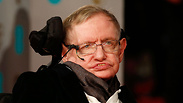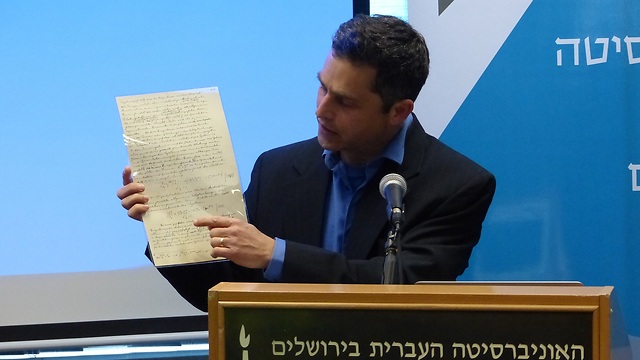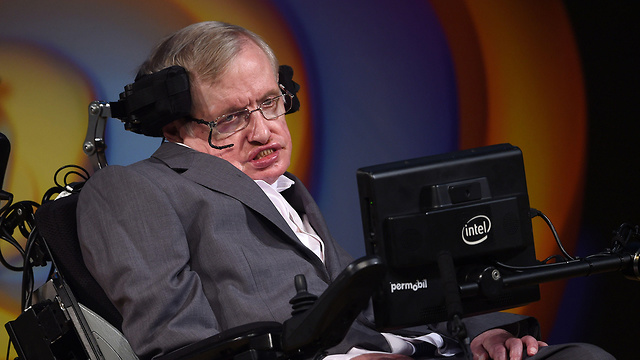
Israeli scientists mourn passing of 'giant' Stephen Hawking
Science Professor Barak Kol, who met the world-renowned physicists, remembers his sense of humor and love for steaks, but also regrets that he joined the academic boycott against Israel; 'We asked him not to and we never got a response.'
Hawking—who despite his prolonged battle with amyotrophic lateral sclerosis (ALS) since 1963, managed to continue to make significant strides in the field of physics and participate in groundbreaking studies—died age 76 at his home in Cambridge on Wednesday morning.
“It is a sad day,” said Professor Barak Kol, who heads the theoretical gravitation and high energy physics group at the Hebrew University.
“I heard him lecture and we were together in the same room a few times, but we didn’t speak because you would have to wait so long for every sentence he said,” Kol said in the joking spirit to which Hawking himself was accustomed regarding his medical tribulations.
“As a scientist, he was one the giants of our time, with his series of discoveries in the field of Einstein's gravitational theory, in black holes, the foundation of the universe and black holes’ relation to quantum theory,” he said.
“His famous discovery was even named after him—the Hawking Discovery” that showed that quantum effects allow black holes to emit exact black body radiation.
“In the beginning it was thought that the black holes were holes on which things fall and he discovered that they emit weak radiations. Beyond that, he was obviously involved in many other discoveries.”
According to Kol, Hawking’s personality could not be separated from his abilities in his field.
“His illness and his coping with it caught everyone's imagination. It was wonderful to see how in his situation he had a family, wrote books and continued to work all the time,” the professor said.
“He held a lot of respect and appreciation in the circle of global scientists, but it’s important to remember that there are other scientists who are not as widely publicized but in my opinion they were no less important. I think that if it wasn’t for his illness, he wouldn’t have reached the celebrity status that he reached, but people loved to see how he coped with his situation.”
The Israeli and the late astrophysicist had a number of meetings in the past, the first being 20 years ago at California’s Stanford University where Professor Kol studied.
“On one occasion a few of us scientists went to a restaurant in Los Angeles in the 90s. He absolutely loved steaks and he ordered one which they put in a blender so he could eat it,” Kol recalled.
“He would usually listen to conversations in his surroundings due to the fact that it was difficult for him to speak to people, but when he did eventually speak, people waited for him, even if it took him a long time and to his credit he would choose the right words and try to pack as many meaningful things as possible into every word.
“We would speak about physics and science, and in these kinds of conversations which I participated in with him, what was important was who would put forward the best arguments.”
But Kol and Hawking had a disagreement in 2013 when the latter, who had visited Israel a few times in the past, decided to join the academic boycott of Israel.
“I thought it wasn’t right to involve politics in science because science is universal. Obviously I wasn’t happy about a boycott against Israel. It goes against the spirit of science and doesn’t help anything,” Kol stressed.
“That’s why I was at the top of a list of Israeli scientists who penned a letter that was written to him on the matter. We asked him to reverse his position and we never received a response. However, years later he made a statement retracting his statements.”
Professor Hagai Netzer, an astrophysicist at Tel Aviv University, also met Hawking when he visited Israel in 1988 to receive the Wolf Prize.
“He was a very nice man, he asked personal questions and I remember that my wife spoke to him and was also very impressed by him,” Netzer said.
Netzer did not sign a letter asking Hawking to change his position on boycotts against Israel in 2013, but he appears to have agreed with it in spirit. “I felt terrible about the boycott, and like many scientists, I think there should have been a separation between science and politics, but I continued to appreciate him and judge him by his discoveries.”












